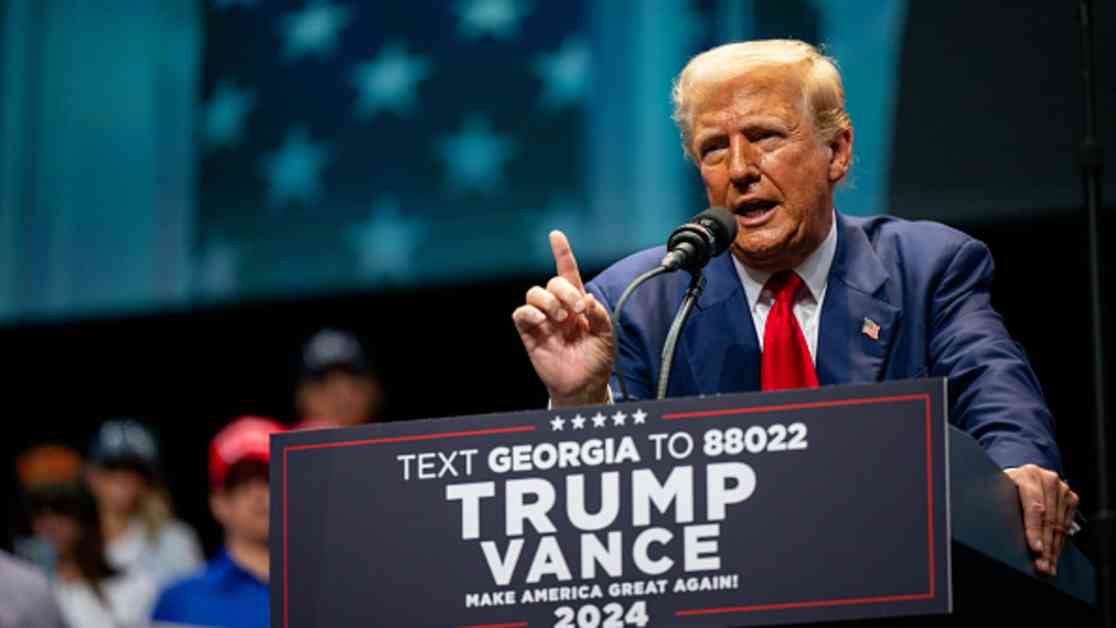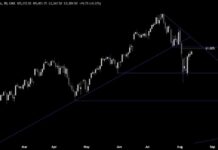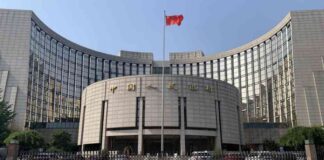Former U.S. President Donald Trump, known for his tough stance on trade, is once again making headlines with his tariff threats that could impact U.S. allies. At a recent campaign rally in Savannah, Georgia, Trump reiterated his commitment to protecting American manufacturing jobs by imposing tariffs on imports from both friends and foes. This shift in focus from China to closer allies has raised concerns among analysts about the potential consequences of such a protectionist agenda.
Trump’s Tariff Strategy
During his first term in office, Trump imposed billions of dollars worth of duties on Chinese goods in an attempt to address what he perceived as an unfair trade balance. Now, he is looking to expand his tariff policies to target U.S. allies, including European and Asian partners. Trump’s goal is to bring manufacturing jobs back to the U.S. by making it more attractive for companies to produce goods domestically rather than overseas.
In a speech in Georgia, Trump expressed his desire to see German car companies become American car companies, emphasizing his intention to have them build their plants in the U.S. He also suggested that there would be a significant shift in manufacturing from countries like China, Korea, and Germany to various states in America. This protectionist approach aligns with Trump’s “America First” policy, which aims to prioritize the interests of the United States over those of its allies.
Potential Impact on U.S. Allies
The prospect of blanket tariffs as high as 20% on imports from all countries, including close allies, has raised concerns about the future of trade relations between the U.S. and its partners. Trump’s criticism of U.S. allies for what he perceives as unfair trade practices has led to fears of retaliatory measures from other countries. Analysts warn that such actions could escalate tensions and disrupt global trade flows.
Nick Marro, Lead for Global Trade at Economist Intelligence, notes that Trump’s confrontational approach to trade could have far-reaching consequences. By targeting U.S. allies with tariffs, Trump risks provoking retaliation from these countries, which could further strain diplomatic relations. The uncertainty surrounding Trump’s trade policies has left countries like Japan wary of the potential implications for their economies.
The Impact on Global Trade
Experts warn that Trump’s tariff threats could have a ripple effect on global trade, disrupting supply chains and increasing costs for consumers and manufacturers. Stephen Roach, an economist, believes that Trump’s tariffs would not only harm America’s trade partners but also result in higher prices for U.S. goods. The imposition of tariffs on foreign inputs could make production more expensive for American manufacturers, impacting their competitiveness in the global market.
William Reinsch, Scholl Chair in International Business at the Center for Strategic and International Studies, points out that Trump’s tariff proposals represent a departure from traditional U.S. trade policy. While the Biden administration has largely maintained Trump’s tariffs on China, it has taken a more strategic approach by working with allies to enforce trade restrictions. The contrast between Trump’s aggressive tactics and Biden’s collaborative approach highlights the divergent views on trade policy within the U.S. government.
Future of U.S. Trade Policy
As Trump continues to advocate for tariffs as a means of protecting American jobs and industries, questions remain about the effectiveness of such measures. While some view Trump’s tariff threats as a negotiating tactic to secure better trade deals, others are concerned about the potential consequences for global trade. Jamie Dimon, Chairman and CEO of JPMorgan Chase & Co, suggests that Trump’s advisors see the proposed tariffs as a bargaining tool rather than a definitive policy decision.
The debate over the impact of Trump’s tariff threats on U.S. allies and the global economy is likely to continue as the former President maintains his protectionist stance. As the Biden administration navigates the complexities of international trade, the world watches to see how U.S. trade policy will evolve in the coming years.

















